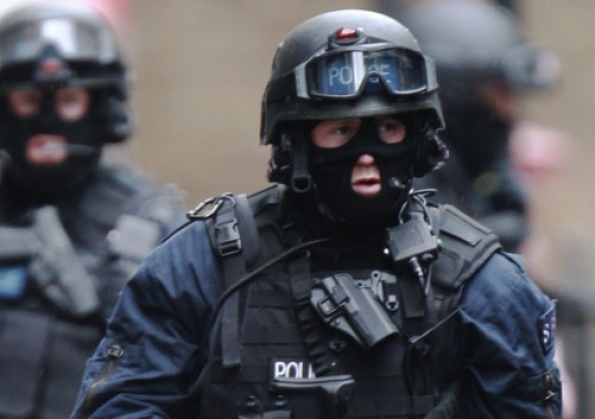" Independent Scotland a 'terror risk' "
My God:
this....fear thing . . .
it's even spread to the
U.K.
Read all about it
in The Scotsman Newspaper...

" Patriotism is the last refuge of a SCOUNDREL"
Propaganda is a form of
communication that is aimed at influencing the attitude of a community
toward some cause or position. Propaganda is usually repeated and
dispersed over a wide variety of media in order to create the desired
result in audience attitudes.
At least the people of Scotland aren't
buying into this
propaganda
...
Comments left by some;
"A socialist Scotland or the Loch Ness Monster?. Labour backed
the Plesiosaur."
"Houston was used as a launch pad for attacks in London and Glasgow airport.
I would say that an independent Scotland would probably be more likely to be
attacked by the US or UK a la Pakistan."
INDEPENDENCE for Scotland could leave all parts of the UK more vulnerable to terrorist attack due to the risk of communication failure between intelligence services, a former leading police officer has warned.
Graeme Pearson, a Labour MSP who was formerly director general of the Scottish Crime and Drugs Enforcement Agency (SCDEA), says having two intelligence services rather than one would create “a minefield of challenges” in the fight against terrorism.
Writing in Scotland on Sunday today, Pearson says: “The arrival of a possibility of Scottish independence amidst the creation of a single police force [in Scotland], if not properly thought through, will go a long way to creating more national ‘boundaries and hurdles’ than ever existed before.”
“My policing experience taught me the lesson that too often the prevention of terrorist outrages and subsequent investigations fail not because the intelligence and evidence wasn’t available, but because agencies, departments or divisions had failed – often due to the competition that exists between agencies – to share their knowledge effectively.”
Pearson says that continuing to rely on London-based intelligence agencies such as MI5 and the Secret Intelligence Service (MI6) after independence would be “untenable”.
But a separate Scottish Government would face a difficult task in creating a Scottish version of the services from scratch as they would require skills and techniques beyond those used by police forces north of the Border.
Pearson says: “Scottish independence has the capacity to create a minefield of challenges for those who are responsible for our national wellbeing in terms of terrorism and also serious organised crime.
“In the event that Scotland should decide independence and separate from the UK, it is difficult to see how current systems of oversight and management can be maintained.
“An independent Scottish Government would want to see its national security capacity directly answerable to Scottish ministers. The notion that MI5 and SIS might engage with Scottish issues, but report to Westminster ministers, looks untenable.”
The modern MI5 has been built over more than 100 years. Its forerunner, the Secret Service Bureau, was created in 1909 to try and stop political and military secrets falling into the hands of German spies in the run up to the First World War.
Creating a Scottish version would be difficult and costly, Pearson says, as MI5 is funded through the UK government’s £2 billion-a-year Single Intelligence Account and employs about 3,800 people. Scotland’s move to a single police force, which is set to come into being in April next year, has been driven in part by a need to save money.
Forces are currently facing real-term budget cuts of about 5 per cent.
The Scottish Government estimates that moving to a single force will save £40 million a year, and £1.4bn in total over 15 years.
However, senior police officers have publicly questioned whether those savings are attainable in the short-term, while the costs of putting the single force in place are still being felt. This is the time period over which, they believe, Scottish security services need to be put in place.
They also question where the necessary skills and experience would come from. One senior police source said: “There are really significant challenges in starting a security service from scratch. It’s inconceivable we’d want to rely on another country to provide those services for us, but where would the experience and skills come from?
“Would it be sensible to recruit from existing UK security service staff or would that in itself present a security risk? What intelligence would the UK service make available upon transition?”
Though rare, terrorist attacks that have taken place in Scotland include the Lockerbie bombing in which 270 people were killed when a passenger jet exploded over southern Scotland in 1988. In 2007, two terrorists drove a Jeep Cherokee carrying propane canisters into the terminal at Glasgow Airport and set the entrance hall on fire.
David Capitanchik, a defence expert at Robert Gordon University, believes the incident was a “wake-up call” for counter-terrorism in Scotland and underlined the need for effective security services on the ground.
“There could not be a situation where Scotland was independent and did not have a security agency,” he added.
The Scottish Government said it planned to discuss intelligence and national security in the run up to the 2014 independence referendum.